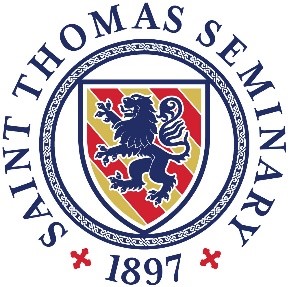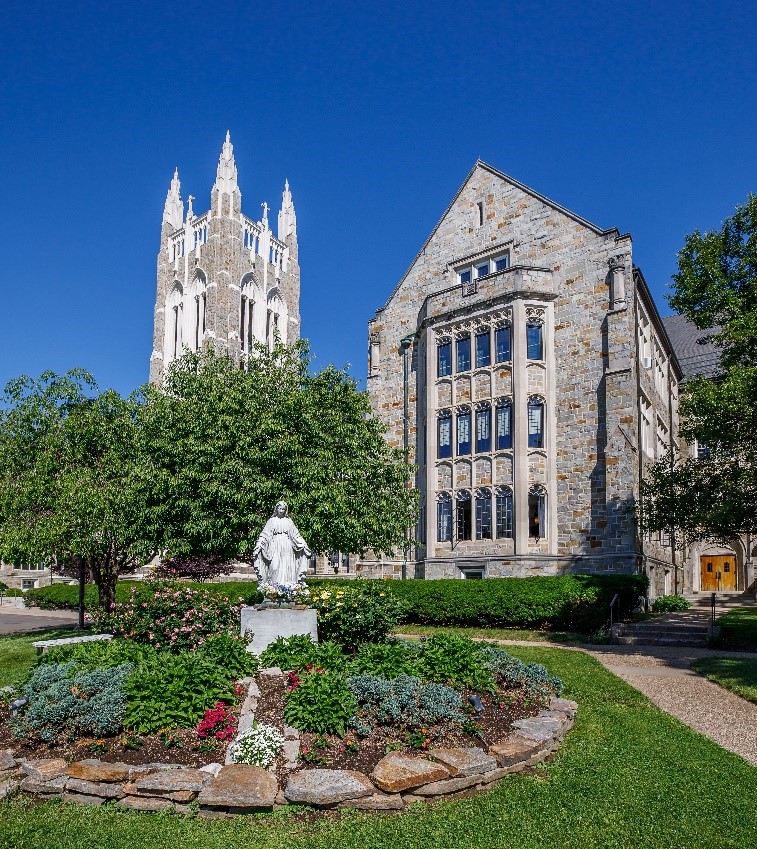The mission of Saint Thomas Seminary is to form candidates for a variety of ministries in the Church today.

About
SAINT THOMAS SEMINARY, located in Bloomfield, Connecticut, was established in 1897 by the Right Reverend Michael Tierney, the sixth Bishop of Hartford, for the purpose of training young men for ministry in the Roman Catholic Church. Throughout the course of the last one hundred and twenty-three years, over 5000 students have passed through the halls of the Seminary, receiving academic as well as spiritual formation. Many of these alumni went on to become priests and have served the Church well in a variety of capacities, some even attaining the rank of bishop. Many others have been active lay members of the Church and have assumed significant roles in esteemed professions throughout the world. The goal of the Seminary since its founding has been the formation of candidates for ministry in the Church as priests, deacons, and lay ministers, and this remains its primary goal and purpose. With the restoration of the diaconate as a permanent order in the hierarchy of the Church in 1972, and with the rise in the numbers of lay men and women seeking to be involved in active ministry, the mission of the Seminary has broadened correspondingly. The Seminary seeks to form candidates for a variety of ministries in the Church today, training them in theological studies and forming them spiritually under the sponsorship and the authority of the Archbishop of Hartford. It is anticipated that many of those who complete the program of study leading to a Certificate in Biblical or Religious Studies from Saint Thomas Seminary will use that knowledge in service to the People of God in the parishes, schools, and other institutions of the Archdiocese of Hartford and surrounding New England dioceses.
Mission & Vision
The mission of Saint Thomas Seminary is to form candidates for a variety of ministries in the Church today, training them in theological studies and forming them spiritually under the sponsorship and the authority of the Archbishop of Hartford.
Hartford Consortium of Higher Education
Saint Thomas Seminary is part of the Hartford Consortium of Higher Education and enjoys mutual cross-registration with member schools. As available, academic officers, faculty and students participate in programs and panels provided by member schools and by the Hartford Consortium itself. We also contribute to promotional activities of the Consortium.
Saint Thomas Seminary’s Archbishop O’Brien Library serves as a resource center for all members of the Archdiocese and for the general public.
Certificate Programs
Saint Thomas Seminary, as part of its focus on its mission and ministry, is institutionally accredited by the State of Connecticut Department of Higher Education (CTDHE), and offers the following certificate programs:
Certificate in Religious Studies:
The Certificate in Religious Studies is a part-time program that is completed over the course of four years. It consists of twelve required courses, plus two electives. All courses award 1 credit each, for a total of 12 credits. This program grew out of the objectives of Saint Thomas Seminary to form candidates for a variety of ministries in the Roman Catholic Church today, training them in theological studies and forming them spiritually under the sponsorship and the authority of the Archbishop of Hartford. The Certificate in Religious Studies parallels the Diaconate Formation Program at Saint Thomas Seminary, and at the current time is open only to candidates for the permanent diaconate. An expansion of this program to other areas of ministerial formation is anticipated in the near future
To learn more visit: The Diaconate Program
Certificate in Biblical Studies:
The Certificate of Biblical Studies is a part-time program that is completed over the course of four years. The program consists of four required yearly courses which award 4.5 credits each, for a total of 18 credits.
To learn more visit: New England Catholic Biblical School
Both Certificate programs are accredited by the CTDHE.

